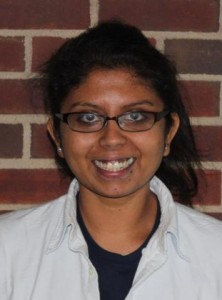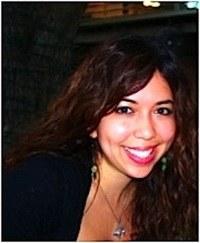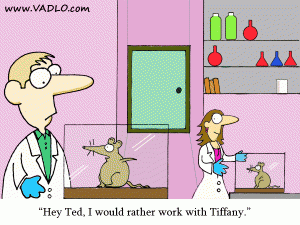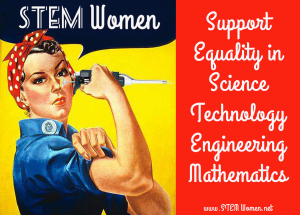We invited Dr. Rasika Hudlikar, Postdoctoral Research Fellow at The National Institutes of Health (NIH), Bethesda, MD to tell us about her career as a postdoctoral researcher. Here, Dr. Hudlikar talks about some responsibilities and expectations from her job and offers some advice to those who are interested in pursuing a career in research at the NIH.

About Rasika Hudlikar, Ph.D.
Rasika Hudlikar, Ph.D. is a Postdoctoral Research Fellow at the National Cancer Institute (NCI), NIH working with diverse team that conducts clinical and translational projects in the area of lung cancer research. Her applied research spans the fields of microbiology, cellular and molecular biology, biochemistry, and in vitro and in vivo oncology. Alongside her multifaceted role as a postdoctoral research fellow at the NCI, Rasika is an editorial member and reviewer for multiple scientific publishing houses and a freelance science writer.
How did you get your current job? Describe the path to your current position.
I obtained my BS and MS degrees in Microbiology. I pursued my Ph.D. in Life Science (Cancer Biology) at The Advanced Centre for Treatment, Research and Education in Cancer (ACTREC), Tata Memorial Centre (TMC) in Mumbai, India. After obtaining my doctoral degree, I began to explore postdoctoral research opportunities, as I was primarily inclined towards conducting research in the field of disease biology. Although I received multiple offers, I decided to take up my first career opportunity as a postdoctoral researcher at Rutgers, The State University of New Jersey, in a lab where my current research interests aligned with ongoing projects and provided me with opportunities to incorporate new techniques in lung cancer research. After serving 3 years as a postdoctoral fellow at Rutgers, my interests leaned toward application-oriented and patient-based projects. This led me to pursue a postdoctoral fellowship at the National Cancer Institute (NCI), National Institute of Health (NIH), Bethesda, Maryland, where I have been working since the last 6 months with a diverse research team, comprising head and associate surgeons, bioinformaticians, and senior scientists to conduct research aimed at understanding the complexity of lung cancer, particularly from a clinical standpoint.
What is a usual day/week at your job position?
My day primarily involves conducting research/benchwork that consists of designing and performing experiments for both independent and collaborative research projects. I’ve listed three most important tasks in addition to my daily research activities:
- Presenting/discussing research articles
- Staying up to date with the latest publications in the research field
- Discussing potential research ideas with my own team as well as with other clinicians at NCI.
My other research activities involve attending scientific conferences to present our work, collaborating with scientists and clinicians in the US, as well as facilitating international research collaborations to promote diversity from various ethnic backgrounds, which is a crucial aspect of scientific research. One of the ultimate goals of our research group is to disseminate the results of our work to the scientific community by publishing our findings in reputed international journals. As a postdoctoral fellow at NIH, we are always encouraged to actively participate in professional development activities outside the lab, for example attending seminars, colloquiums involving career and personal development, including CV/resume writing, job applications, preparing for the interview process, etc. The NIH provides an amazing opportunity for postdocs to acquire various skills, including mentoring students, judging poster presentations at conferences, and preparing candidates for taking up future career endeavors.
From your experience, what does a company/institution look for in candidates applying to your job position?
I believe that dedication to research is an extremely important aspect of working at the NIH. My background in cancer research spans a broad range of experiences, including working with in vitro model systems, experimental animal studies, and human tissue samples, all of which strengthened my application for a postdoctoral fellow at the NIH. From my experience, research institutions also look for candidates who are eager to take on completely new research projects with a diverse soft skillset, including quick learning ability, teamwork, collaborating, and multitasking! Furthermore, developing strong communication skills is an important aspect in postdoctoral research as most work responsibilities involve meeting with a diverse team, including surgeons, bioinformaticians, and global research collaborators where one is expected to not only explain the research with clarity but also understand the challenges at their respective ends. Overall, horizontal learning allowed me to focus on improving my research expertise, whereas vertical learning enabled me to put that knowledge into practice.
What skills have made you and others in your field successful? Were there any unexpected skills that you needed to learn?
Looking back, my career path involved a series of stepping stones, starting from conducting research involving handling organisms at a microscopic scale during my graduate studies in microbiology, to handling organisms at a macroscopic scale, with mice during my doctoral research to understand the complexity of diseases. The research experience I obtained during my Ph.D. was the primary step in learning the basic nuances in the research process, which involves 4 major steps: designing, executing, interpreting/analyzing, and troubleshooting experiments. To accomplish these steps, my mentors taught me in detail about how to dive into research literature to understand potential challenges and research gaps and troubleshoot experiments. After receiving my Ph.D., I began my journey as a postdoctoral fellow in the US with a diverse research culture, and it was thrilling to apply my knowledge/skills to understand different challenges in the field! Although postdoctoral research involves mentorship, I learned to how to independently conceptualize my own project, design the required experiments, conduct experiments, as well as troubleshooting them. My role as a postdoctoral fellow also gave me an amazing opportunity to mentor both Ph.D. candidates and undergraduate students with their research and thesis progress. Another important aspect of my career trajectory was my role in actively participating in professional development research opportunities, which included grant writing and evaluation, reviewing original research articles and literature reviews, as well as writing book chapters, and other university-related volunteering opportunities.
What advice do you have for current graduate students looking into work in this job position?
Learn, learn… and keep learning! Never ever give up on learning new things every day, let it be a new research paper, new techniques, new soft skills, or even new software/websites for analysis of your data. When I observe the working styles of well-renowned scientists, I noticed that the one thing common among all of them is that they never stop learning! Actively build your networking skills and stay up to date with the latest publications in your research lab as well as peers in your research field. Finally, I also suggest exploring traditional as well as non-traditional career paths associated in the STEM career to make this path more enjoying and fun!
The views expressed in this article belong to the authors and not the organization, its affiliates, or employers.
Interview by Janhavi Damani


















